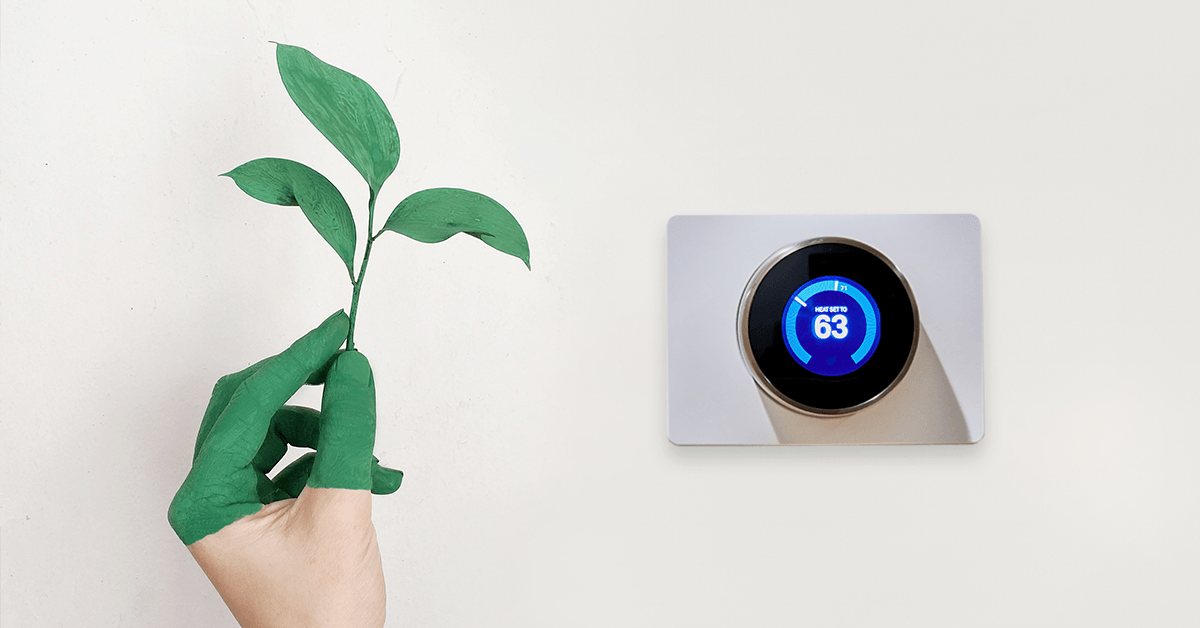What does green HVAC mean for you?
By Madison Capitano on Thursday, August 30, 2018Millennials are leading the charge into a greener market, but what does this mean for HVAC businesses?
I grew up with a mother who would not dare—who could not fathom—turning the air conditioning on till July. July. And no, I did not grow up in any sort of place that could be described as having mild summers.
My mother did this because she has always been exceptionally conscientious of bills and is pretty much a budgeting magician. As an adult, I continue her torturous tradition, not only for frugal reasons, but because it’s better for the environment. Stingy AC policies are the next best thing, considering I’m an apartment dweller who can’t implement green HVAC technology.
What is green HVAC technology?
Green HVAC systems help customers of all needs and sizes conserve natural resources by using the most efficient and environmentally-friendly technologies. Good for the Earth, and also good for them. Green HVAC systems result in lower utility bills for air conditioning, heating, and plumbing. Green HVAC technology typically comes with a more expensive starting cost, but the improvement in energy efficiency makes them more and more economical as time goes on.
Environmental awareness has grown as a hot button issue for years, and air conditioning represents close to 50 percent of the energy use in the United States during the summer months, accounting for almost 100 million tons of carbon dioxide emissions annually. Facts like these have begun changing the way people think about energy needs, products, and services.
Recently Kroger Co., the world’s largest supermarket chain, forsook plastic bags for more environmentally conscious reusable bags.The chain says it plans to stop distributing single-use bags completely by 2025 across its chains. They were lauded as forward-thinkers by many customers, specifically millennials. A 2018 study by The Shelton Group showed that millennials leverage their status as consumers and loyal customers against businesses by purchasing more from brands and companies who have a green reputation. Considering millennials spend about $600 billion per year—a figure that’s expected to grow to $1.4 trillion, or 30 percent of the market—those numbers have a huge significance for businesses. Regardless of how you think about and perceive climate issues, the market has spoken and will only continue to speak.
With millennials now buying homes, that environmentally conscious outlook has started seeping into those purchases as well. Millennials are far more likely to weigh environmental factors and judge them as a shopping priority.
What green technologies are people buying?
The choice to purchase more efficient and environmentally friendly products is really made possible by the fact that, well, they exist now. Green technology has reached a point where it is both useful and just affordable enough to be considered in homes. Things like smart thermostats (check out the link for exactly how this cool technology impacts HVAC) have taken up residence in 17.5 million homes across North America. They’re expected to continue gaining traction in a society where consumers place more value on lessening their carbon footprint.
Because the products are changing, education programs and trade schools are starting to jump on the bandwagon.
I’ve covered continual training for HVAC professionals as well as finding some of the best HVAC programs at trade schools, and one common thread is the appearance of specific green HVAC courses and specializations. This includes lessons on general geothermal technology and water recirculators, as well as specifics like a Chromasun Micro-Concentrator (super-powered solar air conditioning) and Ice Energy (exactly what it sounds like). The new generation of HVAC technicians is getting schooled in the mechanics and maintenance of these new technologies.
How is this going to shape the future of HVAC?
Change can be worrisome. Automation and new technology have already eliminated a lot of jobs. You might naturally wonder if some future innovation will put you out of business. But I have good news on that front! HVAC technicians aren’t going anywhere.
Installation will always be a need. Emergency issues will undoubtedly keep arising. And preventative maintenance is still going to be important, possibly even more so with some of the different and delicate components that make up new green technology.
The main way that these technologies are impacting the business is by changing the skill sets needed from technicians. In order to get and stay ahead of the curve, it’s important for your technicians to stay informed. Check out green HVAC certificate courses at some of these schools, or maybe even at a local trade school near you. Innovation of technology calls for innovation of technicians.
The first air conditioner was invented in 1902, and it wasn’t even made for keeping people cool. Willis Carrier created it to deal with the humidity in his printing shop. But as well all know, his invention grew immensely, transitioning to commercial use in just a decade. With 84 percent of all homes in the United States using some kind of air conditioning, the need for HVAC work won’t vanish anytime soon, it will just adapt and evolve like it always has.


